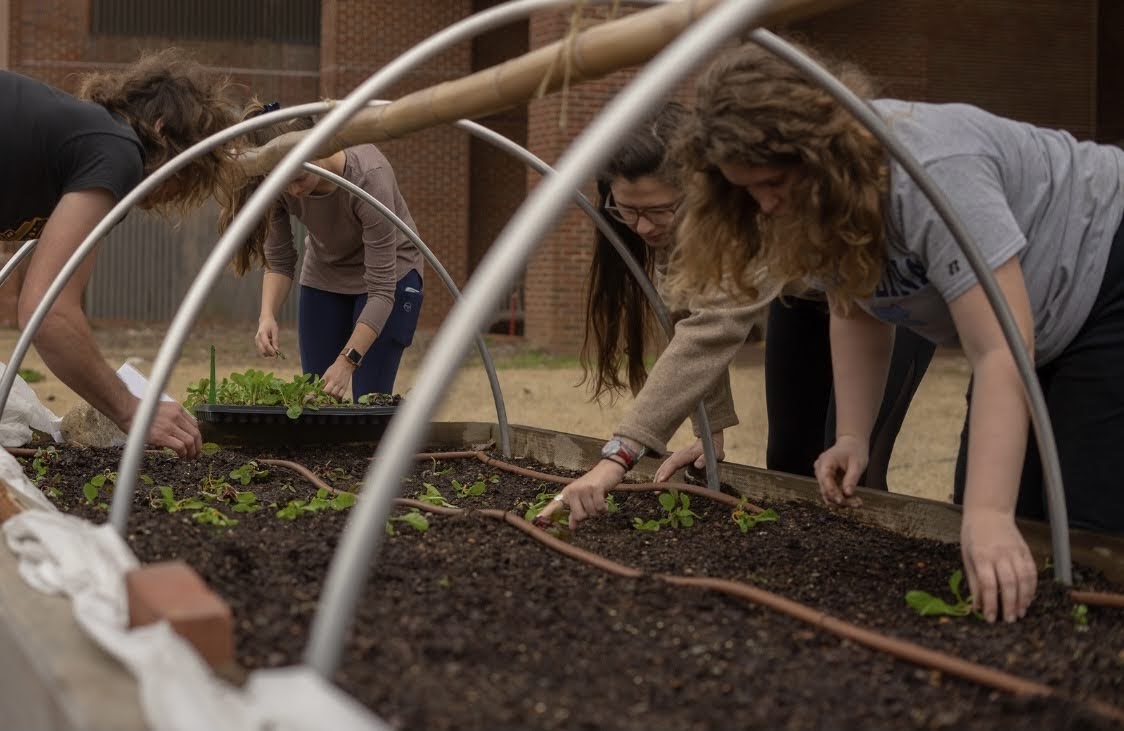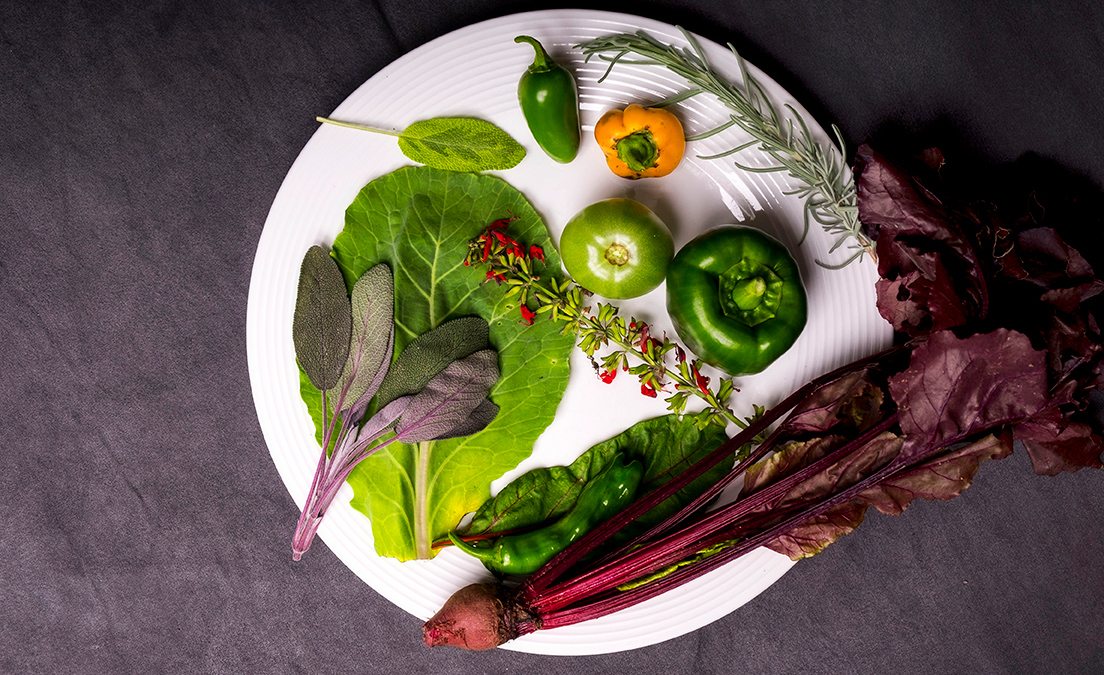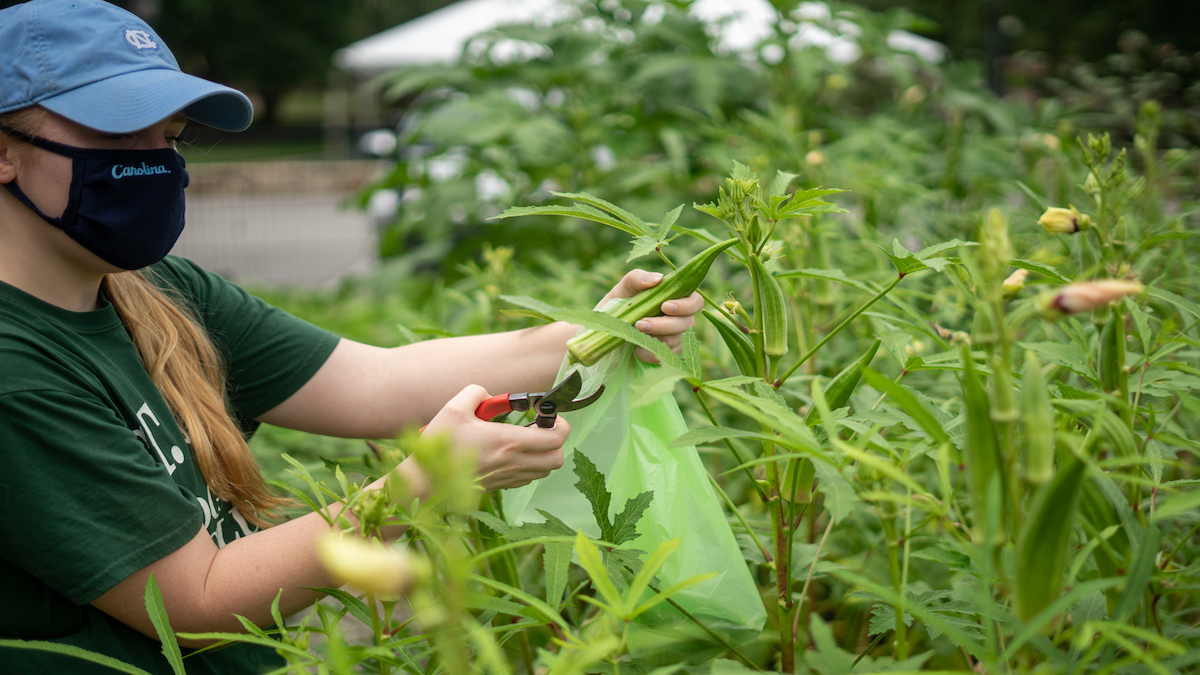Reconnecting Tar Heels with their food
While fruits, vegetables and herbs are plentiful in Edible Campus UNC's multiple on-campus gardens, the organization does more than just grow vegetables. Through education and community outreach, the group is striving to reconnect people with their food.
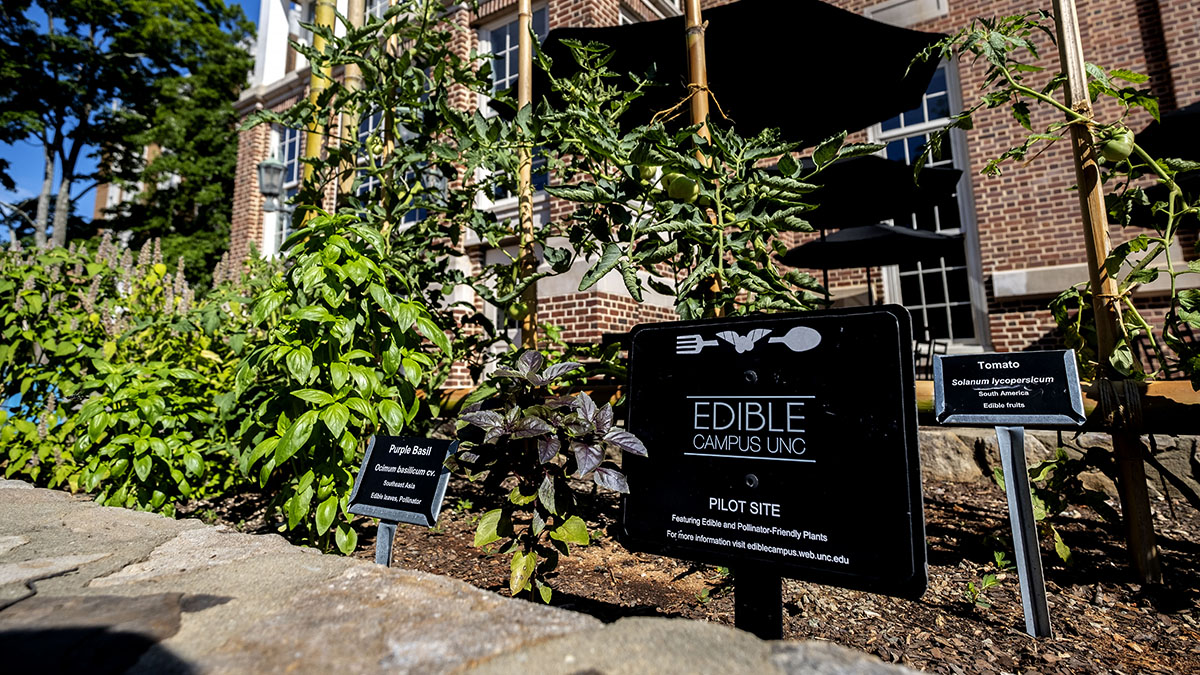
There’s nothing quite like the feeling of running your hands through the soil searching for vegetables, tasting a ripe fig plucked right from a tree in front of Hardin Residence Hall on South Campus or making your own tea from herbs you plucked from in front of Davis Library.
Edible Campus UNC, a North Carolina Botanical Garden program and student organization that creates working landscapes across campus, makes these experiences possible for the Carolina community.
With a quarter-acre organic garden behind Davis Library and 11 garden beds across campus that house edible, medicinal and pollinator-friendly plants, Edible Campus strives to reconnect people with their food.
And while fruits, vegetables and herbs are plentiful, the organization does more than just grow vegetables, says Carolina senior Michael Dorgan, president of the Edible Campus UNC.
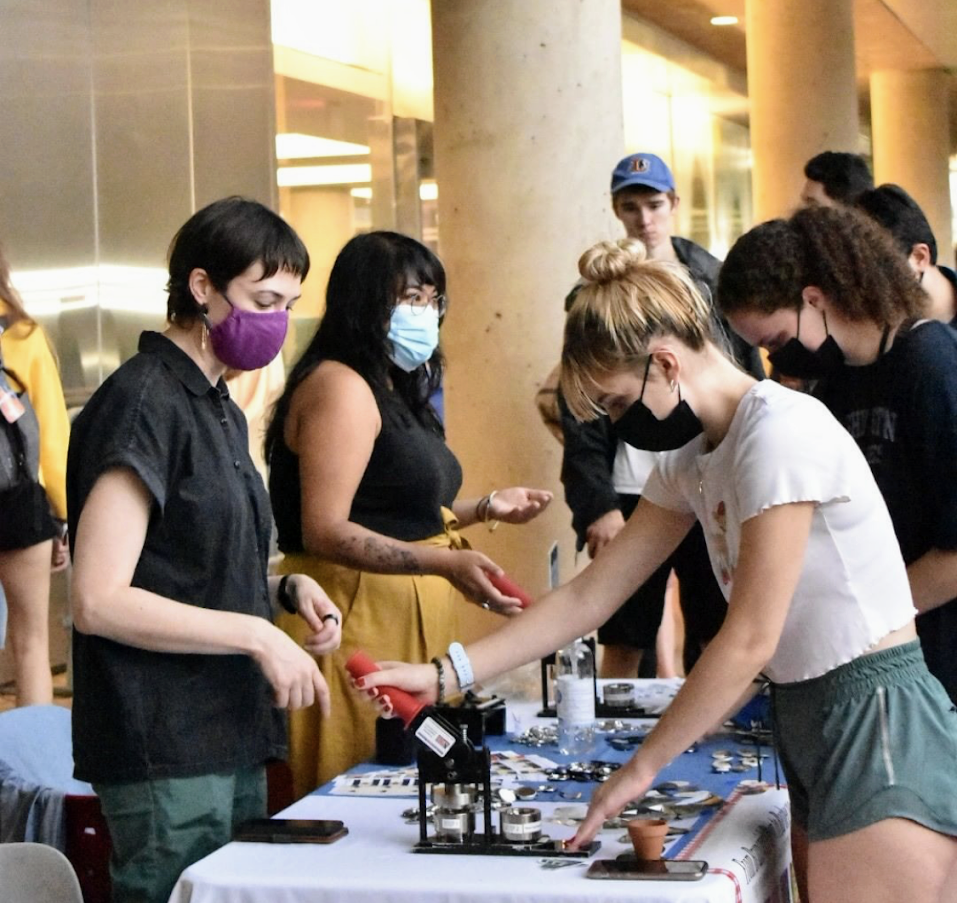
Students participate in Edible Campus UNC’s Harvest Moon Festival in September. The event is just one of several ways the organization brings its mission to the campus community. (Photo by Edible Campus UNC)
Education and community outreach are at the heart of Edible Campus, and nowhere is that more evident than the main garden located behind Davis Library. Upon entering the garden, visitors are greeted by signs that explain the purpose of the garden, the organic farming practices in use, the composting process and crop rotation.
Looking around, you’ll see that the garden is filled with activity, with bumblebees buzzing around the lavender and butterflies bouncing between coneflowers. You wander through rows of raised garden beds where okra and pepper plants grow tall. Depending on the day, you might even walk in on a nutrition workshop, academic research or a community event.
“It has been so impactful to spend time and energy with a group of dedicated students working to learn more about agriculture and where their food comes from,” Dorgan said.
Tar Heels don’t even need to be in the gardens to get involved with Edible Campus. The organization hosts several events on campus, including the Harvest Moon Festival and Earth Week, to help anyone feel part of the Edible Campus community. The group even has its own cookbook and will soon be adding a free “Little Library” to its main garden to serve as a book exchange.
“Not everyone is going to be able to come to workdays or be a ‘plant person,’ but they may like to cook and find inspiration from the cookbook,” says Kyle Parker ’06, the Edible Campus coordinator. “Perhaps they are into recycling or composting, and one of our Earth Week videos strikes a nerve and they choose to get involved in with CompostMates or recycling programs on campus. We’re an education program, after all, so the more knowledge we can disseminate, the better.”
Edible Campus is not alone in these efforts. The group partners with other campus units and departments to bring that knowledge to a broader audience. Their effort, Parker says, is a community effort.
“The other big thing with outreach is that it gives us the ability to highlight and uplift the work of other organizations that are doing fantastic positive work around campus,” he says. “The tabling at the Harvest Moon Festival is a perfect example. Having UNC Libraries, Bee Campus and Arts Everywhere come out and get their message in front of more people helps to promote their work, but also strengthens the entire ecosystem of educational and environmental organizations on campus, Edible Campus very much included.”
